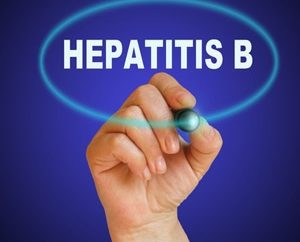
Maturing men have different nutrition needs
Maturing men have different nutrition needs
.
Study after study shows that men delay seeing doctors, even when they perceive a need. The reasons why remain debatable, but skipping all-important check-ups may explain why the male lifespan is roughly six year’s less than a woman’s.
Men, particularly those over 65, tend to “tough things out,” when screening for disease is absolutely essential to maintaining good health in the boomer years. Women, accustomed to routine medical exams, are more likely to catch potential issues early, preventing problems with early intervention.
According to the Center for Disease Control (CDC), men who are 65 and over should schedule annual doctor visits to assess weight; blood pressure; prostate, rectal and thyroid health; hearing and visual acuity; blood sugar levels; skin health and cholesterol levels. Annual visits to the dentist are also important, as are vaccinations for the flu.
Maturing men also have different nutrition needs. Essentially, eating to fill significant nutrient gaps in the diet can lower disease risk and improve overall quality of life in the golden years.
Vitamin D: As we age, our skin becomes less adept at synthesizing vitamin D from the sun, so a diet rich in vitamin D can help preserve muscle mass and bone density, keeping you strong. Eat fatty fish such as salmon and tuna at least three times a week; drink milk and eat whole eggs, since the yolk is a source of vitamin D.
Vitamin B: Gastric acid is essential for the absorption of vitamins B12, B6 and folic acid, which are each important for memory and circulation. With age, production of stomach acid slows, making deficiencies prevalent. So, choose foods that are fortified with the family of B vitamins, including cereals, breads and orange juice, and enjoy dark, leafy greens, poultry and dairy products.
Calcium: This mineral is associated with women and osteoporosis, but men are at risk for bone loss, osteoporosis and weight gain later in life, so having three daily servings of milk is a smart move.
Magnesium: The majority of American adults are deficient in this mineral no matter what their age, and it’s concerning, since more than 300 biochemical reactions require magnesium. Magnesium deficiency can impair calcium and vitamin D function. Boost your intake of magnesium with spinach, nuts, beans, brown rice and avocado.
Coenzyme Q10: Research about this micronutrient, which declines with age, is in its infancy, but findings are intriguing, showing the potential to reduce atherosclerosis (in rats) and perhaps play a role in treating neurodegenerative diseases such as Parkinson’s, so I recommend a supplement of 100 milligrams CoQ10 daily.
Calories: If you continue to consume the same number of calories as you did when you were a fraternity pledge, you’ll pile on the pounds; metabolism begins to slow after age 40. To stay lean, keep caloric intake between 2,200 and 2,400 each day. You will look and feel so much better.
If you don’t think you’re getting enough essential vitamins and minerals through food, talk to your doctor or dietitian about supplements.
Tina Ruggiero, M.S., R.D., L.D., is a nutrition expert and award-winning author. Her newest book is “The Truly Healthy Family Cookbook.” Find Tina at www.TinaRuggiero.com.




